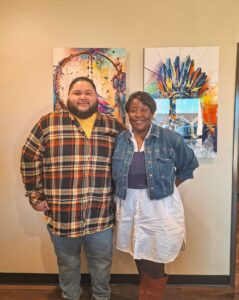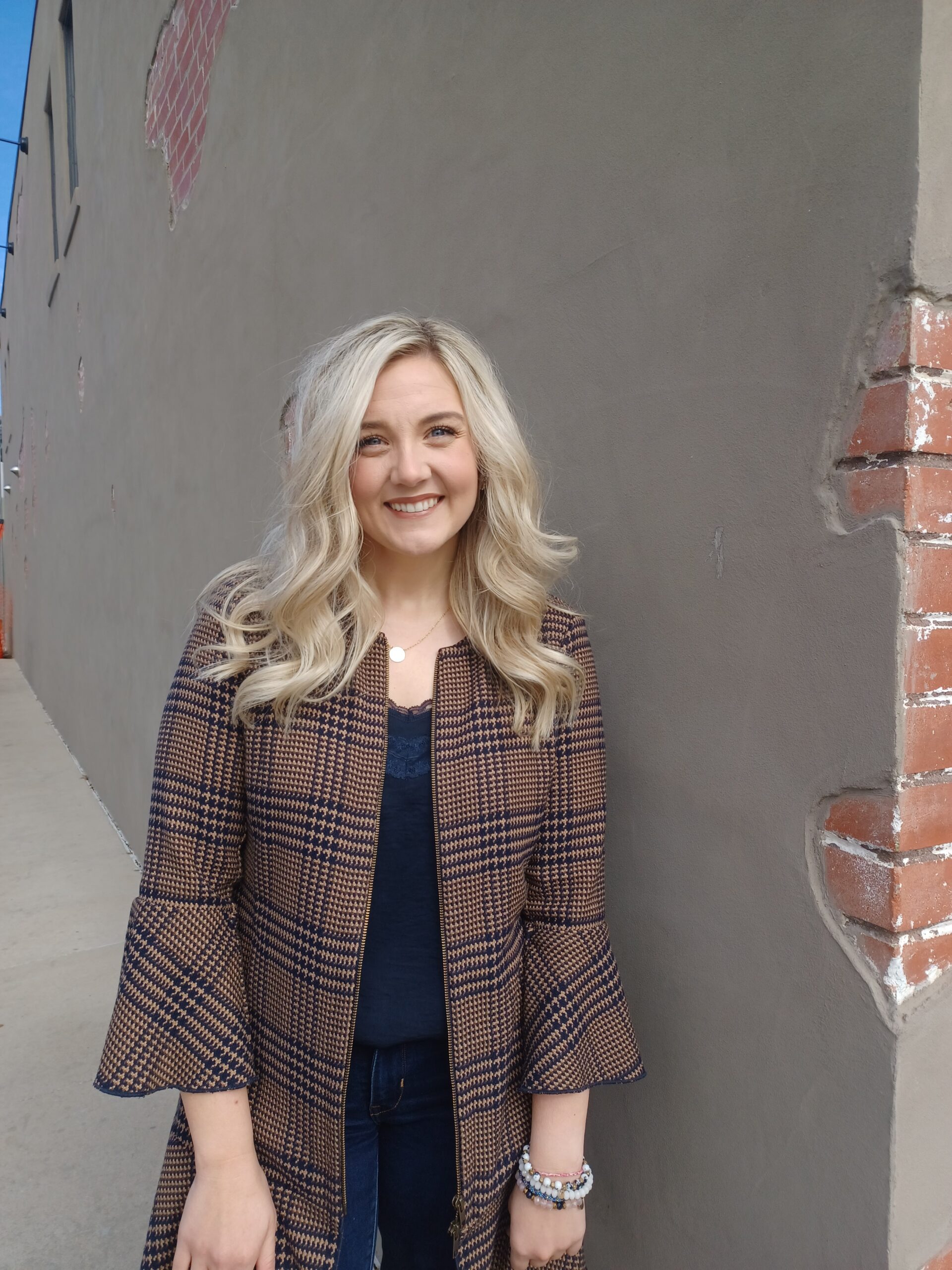
Casey Black: Determining Challenges, Finding Solutions
December 14, 2022 by Jessika Leatherbury
By: Sunnie Dawn Smith
 Raising the next generation of entrepreneurs is no simple task. However, Casey Black is an educator with Ada High School helping to support the next generation of entrepreneurs in our region. This role is something Black is uniquely equipped to do working as faculty member at Ada High School since 2021. With the support of her administration and a grant through the Ada City Schools Foundation, she is able to bring an entrepreneurial focus into the classroom. While she was originally teaching Yearbook, Fundamentals of Technology, Digital Media Production, and Social Media Marketing, this year she replaced the Social Media Marketing course with Entrepreneurship, trying to give her students the real-world experience they would need to start their own businesses or even just to think critically and creatively in their future endeavors. She challenges them to find the challenges in their lives but also to find the solutions.
Raising the next generation of entrepreneurs is no simple task. However, Casey Black is an educator with Ada High School helping to support the next generation of entrepreneurs in our region. This role is something Black is uniquely equipped to do working as faculty member at Ada High School since 2021. With the support of her administration and a grant through the Ada City Schools Foundation, she is able to bring an entrepreneurial focus into the classroom. While she was originally teaching Yearbook, Fundamentals of Technology, Digital Media Production, and Social Media Marketing, this year she replaced the Social Media Marketing course with Entrepreneurship, trying to give her students the real-world experience they would need to start their own businesses or even just to think critically and creatively in their future endeavors. She challenges them to find the challenges in their lives but also to find the solutions.
Black graduated from East Central University in 2017 with a degree in Business Management. She grew up in Chickasha, Oklahoma and her family owned convenience stores. From a young age, she was expected to help the family business however she could. At age 12 she was doing the accounts receivable for the store and by 16 she was running the back-office part of the business, tallying up the daily sales and making sure that everything that was needed got ordered. At the same time, she was also very involved in school and had another part-time job of her own. After graduating high school, she enrolled at East Central University.
At East Central she gained experience in her classes, working at the Harland C. Stonecipher School of Business, and doing internships. Dr. Stacey Bolin became her mentor and guided her through her academic journey, always pushing her to do more and accomplish more while shaping her into the person she is today. Upon graduation, Black took a job in the industry as Executive Director for a global non-profit organization, IEDA (Independent Equipment Dealers Association). She would plan their board meetings and annual events, but in the midst of the 2020 coronavirus pandemic, she changed course. Dr. Bolin reached out to ask her about her plans, and out of nowhere, Black answered that she was going to get alternatively certified to teach and substitute teach in the meantime. Her response was surprising to even her because it is not something she had ever really considered up to that point.
In the beginning, she was subbing for Ada City Schools and tutoring students on the side. It was through tutoring that she really developed her passion for teaching. She would have a chance to see that “lightbulb moment” where a student would really get it. While that moment was great for the student, it also provided Black with an intense gratification, and she knew that she was on the right path. Looking back, Black says, “I thought, ‘I don’t know why I haven’t been doing this before.’ I realized this is what I was meant to be doing.”
After getting her certification, Black joined the faculty at Ada High School. In her first year of teaching, she took two teams to the Tiger Tank competition at ECU, a competition where high school and college students compete against one another in two different categories: Tiger Tank and Tiger Promote. For Tiger Tank, the students give their pitch for a new business, for Tiger Promote, the students give their pitch for an event or fundraiser. Both of her teams received awards. The Tiger Tank team was awarded Honorable Mention and the Tiger Promote team won first place. This year, Black took eight teams to competition and garnered first and second place in Tiger Promote and third in Tiger Tank.
One of the things that helps her students succeed in these endeavors is Black’s own experience in competition. In 2020, Black had decided to pursue graduate work at ECU and Bolin encouraged her to compete in the Love’s Cup, a college level pitch competition, as a graduate student. She had to present a 90 second pitch to the judges in a virtual meeting. Black was nervous, especially because she was going up against six person teams from OU and OSU. However, despite the intimidating level of competition, Black won second place.
Her pitch was for a product that was close to her heart—a portable white blood cell counter inspired by her grandmother. “In the middle of Covid I went over 365 days without giving my Mimi a hug.” This inspired Black to present an idea for a portable white blood cell counter that was affordable and could let people gauge the fluctuation in their cell counts so they could know if something was wrong before they were even presenting symptoms.
For Black, her pitch all started with a problem that she saw in her life that needed to be solved. In this case it was concerns with her grandmother’s health. She continues this same approach as she tries to get her students to think about the problems and challenges in their own lives—whether large or small—as a jumping off point for their entrepreneurial visions. She tries to teach them to “think outside the box.” Black says, “When you are constantly challenging the way that things are done, that is where growth happens. This class is creating a space for them to think about these challenges and how to solve them and make them a little bit better.”
The potential for the entrepreneurial spirit is strong in her students, and who knows the types of innovations they can come up with if they just let themselves open their minds to the greater possibilities, especially when it comes to technology. Black, though she doesn’t consider herself a technologist, had focused her pitch for the Love’s Cup around a technological innovation. She didn’t set out to do something with technology, but there was a problem in her life that needed a solution. One of the biggest challenges she faces when encouraging her students to pursue tech entrepreneurship is confidence. She says, “They don’t understand that they can do it as a high school student.” But these kids are a part of a generation that is steeped in technology. They are constantly surrounded by it and engaged with it. It is necessary for them to understand that it is a new world to explore. They just have to determine what the problem is and then find their solution.
Sign up to receive more news from the Ada Jobs Foundation HERE!
Written by
Jessika Leatherbury
You may also interested in:
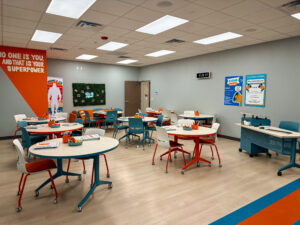
BUILDING FUTURES: WORK READY ADA CELEBRATES ITS FIRST YEAR
BY: CATHLENA SPENCER Just one year ago, Work Ready Ada, a new employment readiness program, was launched in partnership with Pontotoc Technology Center (PTC). The program, funded by Oklahoma Human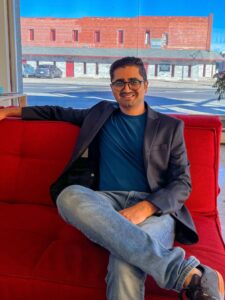
AI IN EDUCATION: A CONVERSATION WITH VINAYAK MITTY
BY: SUNNIE DAWN BAKER One of the areas in technology with the most potential for entrepreneurial growth is Artificial Intelligence (AI). AI is increasingly shaping every part of our lives,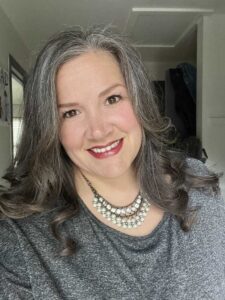
Adapt and Overcome: Allison Poe’s Recipe for Resilience and Growth
By: Sunnie Dawn Baker Allison Poe has always followed her feet. She waits for the signs to appear and, once she recognizes them, she travels that path, and has never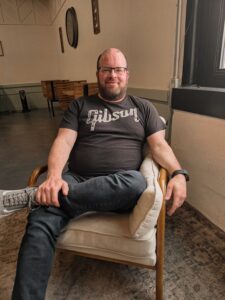
Jeff Warren: A Life in Sound, Vision, and Storytelling
By: Sunnie Dawn Baker When Jeff Warren got involved in the Houston music scene as a teenager, he had no clue where his path would lead. Now, nearly thirty years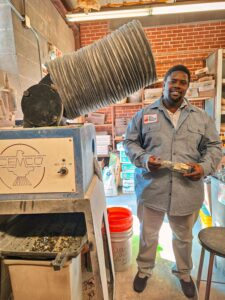
From Pitch to Progress: ECU's Glass Recycling Program Turns Waste into Opportunity
By: Sunnie Dawn Baker In 2018, Dr. Christine Pappas competed in Ada Jobs Foundation’s Big Pitch Competition by promoting grinding glass bottles into sand. She won the Big Pitch that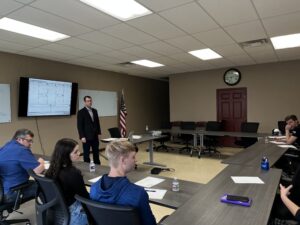
The Importance of Customer Discovery: Know Your Audience and Know Your Market
By: Sunnie Dawn Baker Entrepreneurs and small business owners must consider many factors to achieve success, with their target market being one of the most crucial. Sometimes, when people are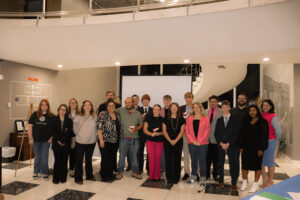
What Does Economic Development Do for You? The Significance of the Economic Multiplier
By: Sunnie Dawn Baker People often find the term “economic development” vague and confusing. Understanding how economic development works and benefits the community can be challenging. Though there are many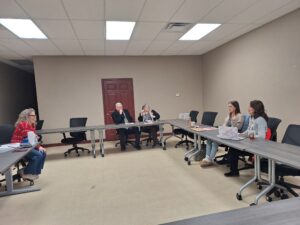
Helping Entrepreneurs One Workshop at a Time: Lauri Rowe and QuickBooks for Small Businesses
Entrepreneurs tend to be filled with passion and big ideas. They have found a solution to a problem they see in the world, and they barrel ahead, excited for their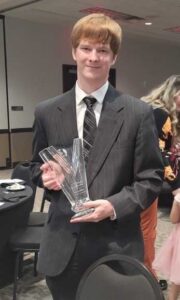
Hunter Cook: Technology, Entrepreneurship, and the Written Word
By: Sunnie Dawn Baker Hunter Cook started writing when he was seven years old. At first, he wanted to write comic books, but then he realized he couldn’t draw. He